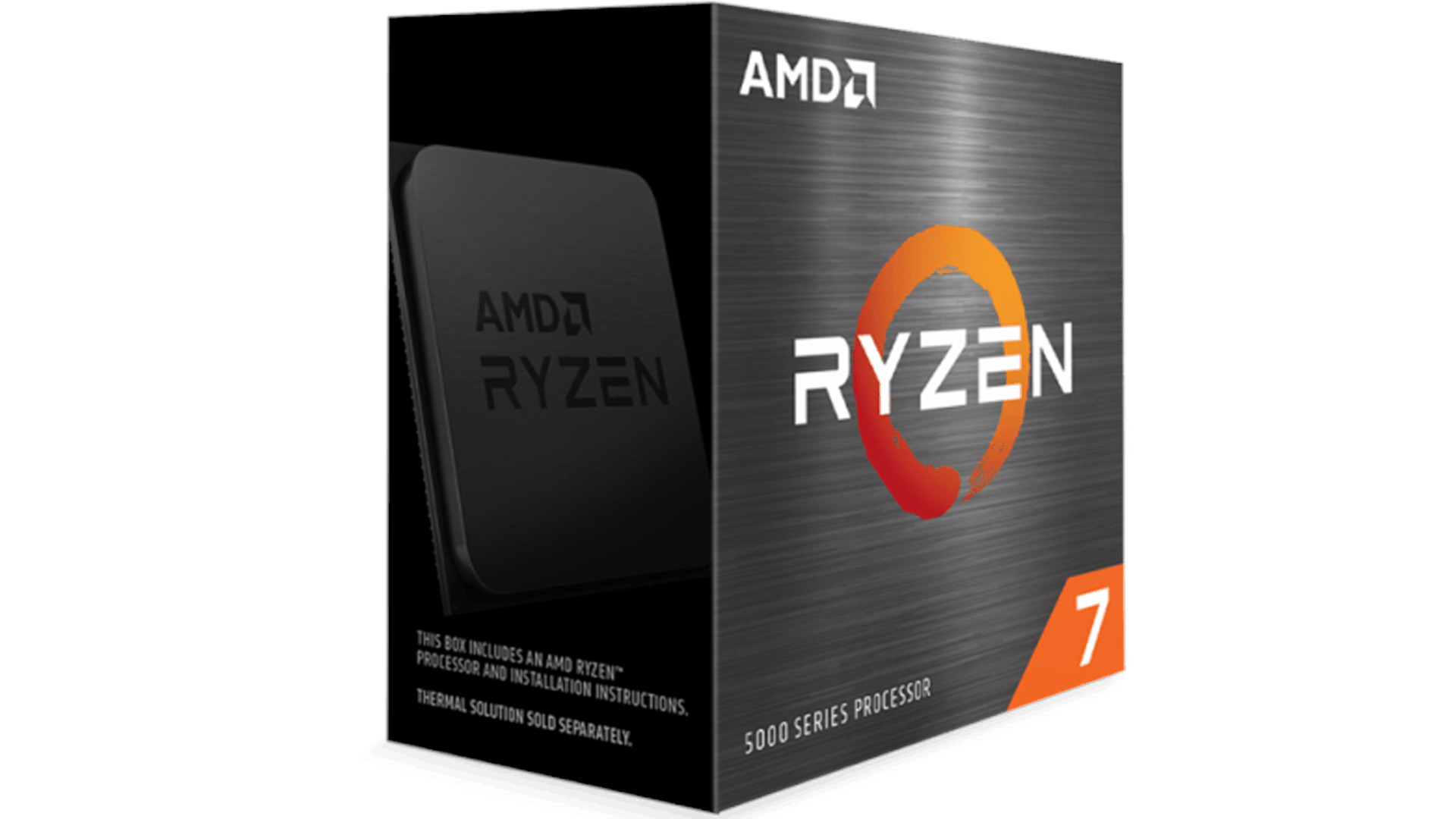For the majority of casual gamers, the AMD Ryzen 7 5800X should be the most intriguing processor from AMD’s new Zen 3 lineup because it finds the sweet spot in terms of the core arrangement from a gaming standpoint. For the foreseeable future, eight cores and 16 threads are essentially required for a good gaming experience, thanks in part to the Xbox Series X and Playstation 5 having these specifications.
That is the premise, at least, even though the pricing presents a possible issue right away. In case you missed it, AMD raised the price of this series of processors by $50/£50 in comparison to its predecessors, bringing the 5800X’s price to $450/£450. That’s a sizable sum of money, especially in light of the fact that the Core i7 10700K from Intel, which is equivalent, typically sells for $375.
The Ryzen 7 5800X will have its hands full of multitasking work. This CPU, which sits above the 6-core, 12-thread Ryzen 5 5600X and below the 12-core, 24-thread Ryzen 9 5900X(opens in new tab) and the 16-core, 32-thread Ryzen 9 5950X, is the third in AMD’s lineup of Zen 3 processors at launch.
There may only be four chips available at launch, but the non-X variations will surely increase that number, freeing up space for updates to the cheaper ranges and perhaps even the 5700X. Despite the fact that we haven’t seen anything about that chip yet, we can’t help but wish there was a cheaper, slightly slower version of the 5800X that provided greater value for the money.
AMD Ryzen 7 5800X Specifications
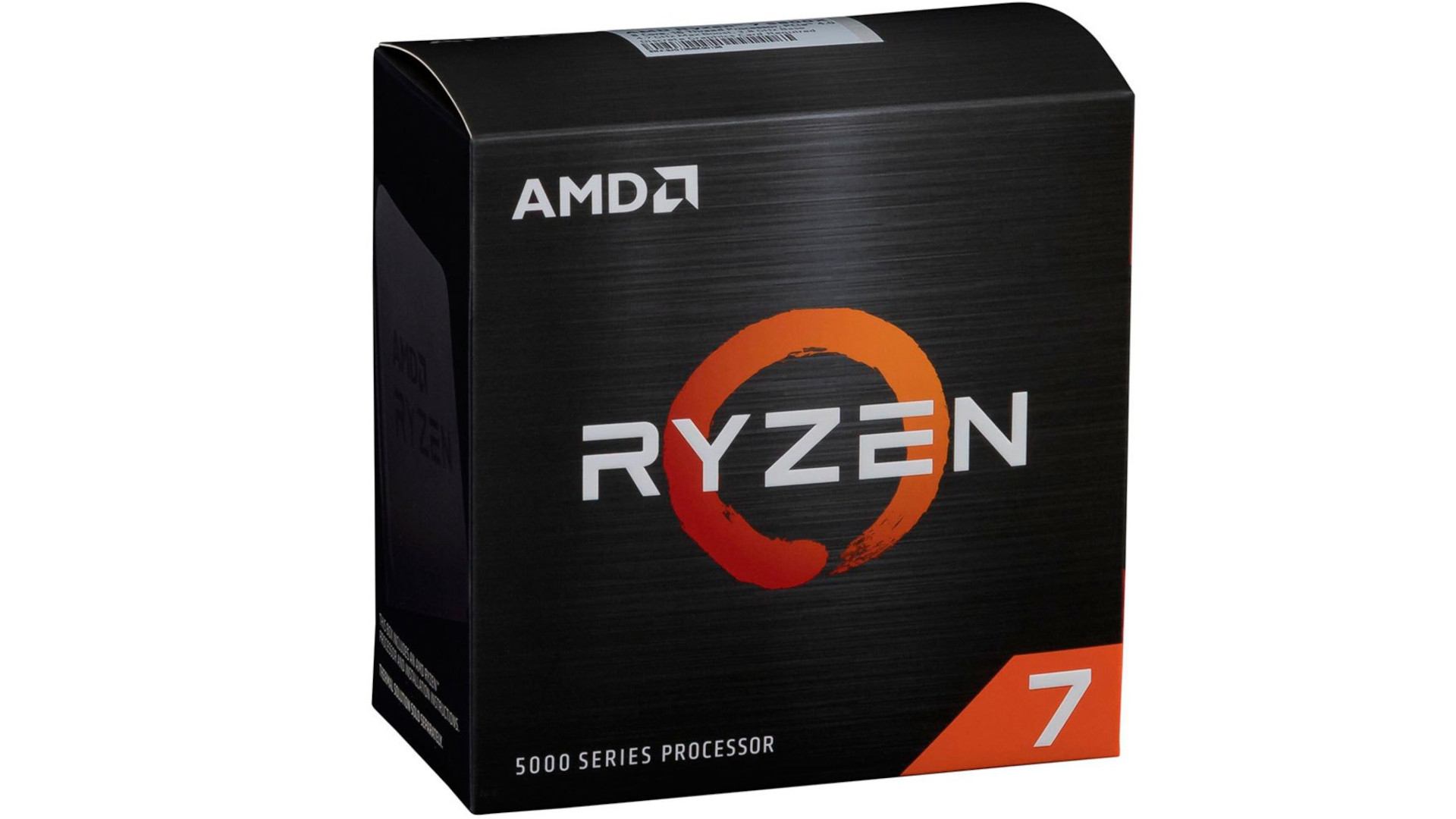
The AMD Ryzen 7 5800X is an eight-core, 16-thread processor with a base clock speed of 3.8GHz and a maximum turbo frequency of 4.7GHz. All eight cores in this single CCX design have access to 32MB of L3 cache, hence there is no possibility of chiplet sluggishness, which can occur on CPUs with more cores.
Similar to the 5900X, Precision Boost 2 can have a significant impact on the 5800X’s speeds. During testing, we saw that the single-core performance exceeded the stated turbo to 4.8GHz (opens in new tab). Although we did see 4.5-4.6GHz across all cores in a number of tests, which is a healthy clock speed, multi-threaded rates really do depend on what you are doing and can vary dramatically between apps.
The 5800X offers PCIe 4.0 capability, just like the previous model. When we start utilizing technologies like DirectStorage to speed up game load times, this may prove to be more helpful than it is at the moment, since storage is the only area in which it is really pertinent.
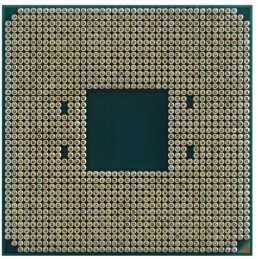
Although faster kits are supported, official memory support remains at DDR4 3,200MHz. It is also possible to use a set of 4,000MHz memory while operating the Infinity Fabric at 2,000MHz, albeit this isn’t completely supported at launch.
AMD Ryzen 7 5800X Specs
| Platform | Boxed Processor |
| # of CPU Cores | 8 |
| Base Clock | 3.8GHz |
| Default TDP | 105W |
| CPU Socket | AM4 |
| Launch Date | 11/5/2020 |
| Product Family | AMD Ryzen™ Processors |
| # of Threads | 16 |
| L2 Cache | 4MB |
| Processor Technology for CPU Cores | TSMC 7nm FinFET |
| Thermal Solution (PIB) | Not included |
| *OS Support | Windows 10 – 64-Bit EditionRHEL x86 64-BitUbuntu x86 64-Bit |
| Product Line | AMD Ryzen™ 7 Desktop Processors |
| Max. Boost Clock | Up to 4.7GHz |
| L3 Cache | 32MB |
| Unlocked for Overclocking | Yes |
| Max. Operating Temperature (Tjmax) | 90°C |
AMD Ryzen 7 5800X Performance & Benchmarks
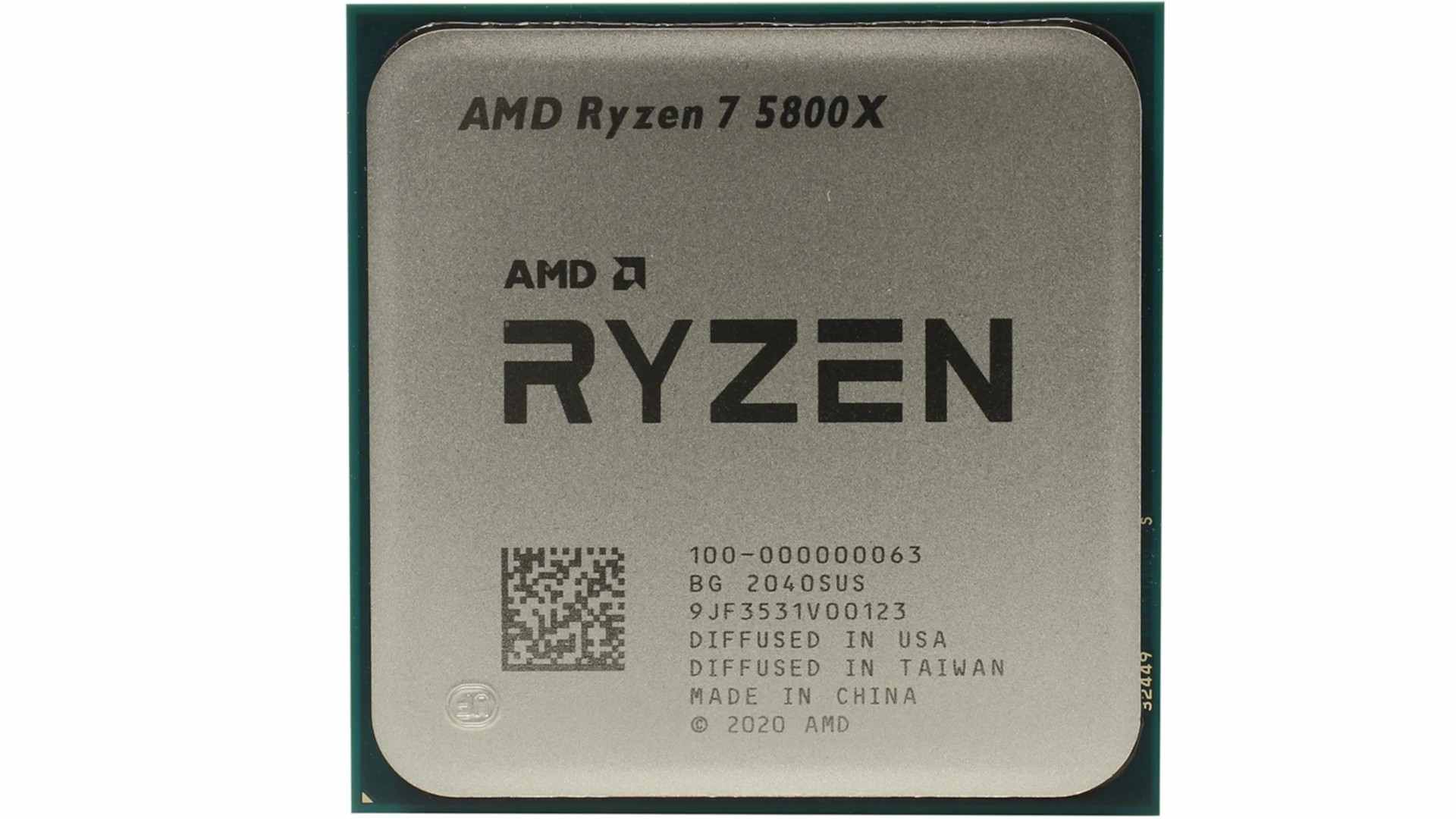
We’ll begin as usual using Cinebench R20. With a multi-core test score of 5982 points, the 5800X was 22% quicker than the 3700X. This significant performance improvement is in line with what we’ve come to expect from Zen 3. The 3800X is actually no faster than the 3700X, so we didn’t bother testing it again. In this test, a 3% performance improvement is relevant.
Even though both CPUs have 8 cores and 16 threads, the new AMD CPU is 20% faster than the 10700K. In actuality, while having 25% more cores, the 10900K is just 7% slower than the 5800X.
The clocks of the 5800X were measured during Cinebench testing. The 5800X clocks at about 4.55 GHz for the multi-core test, which extensively utilizes all cores, which is significantly higher than the declared 3.8 GHz base clock frequency.
Additionally, AMD offers a maximum boost clock frequency of 4.7 GHz, which should be achievable in workloads that use just one core or a few light threads. The 5800X frequently ran at 4.85 GHz in the Cinebench single-core test, which is 150 MHz faster than the quoted benchmark.
The performance of 7-zip compression is superb. Because it was 24% quicker than the 3700X and 22% faster than the 10700K, the 5800X even managed to surpass the 10900K. In other words, the 5800X is currently by far the fastest 8-core desktop CPU.
Even so, the margins do slightly contract during decompression. A tough 8-core smackdown there, the 5800X is 19% faster than the 3700X and 31% faster than the 10700K.
AMD Ryzen 7 5800X Power Consumption
The Ryzen 7 5800X consumes about 20 more watts than the 3700X, but this is not entirely unexpected given that the 3700X is operating at its most efficient. For instance, the 3800X uses 20 watts more than the 5800X, bringing the power consumption of the two devices closer to parity.
Also noteworthy is the fact that the 5800X outperformed the 3700X by 16% in this test, making a 13% increase in system power still quite efficient. Additionally, it uses 30 fewer watts than Intel’s 10700K.
AMD Ryzen 7 5800X Gaming
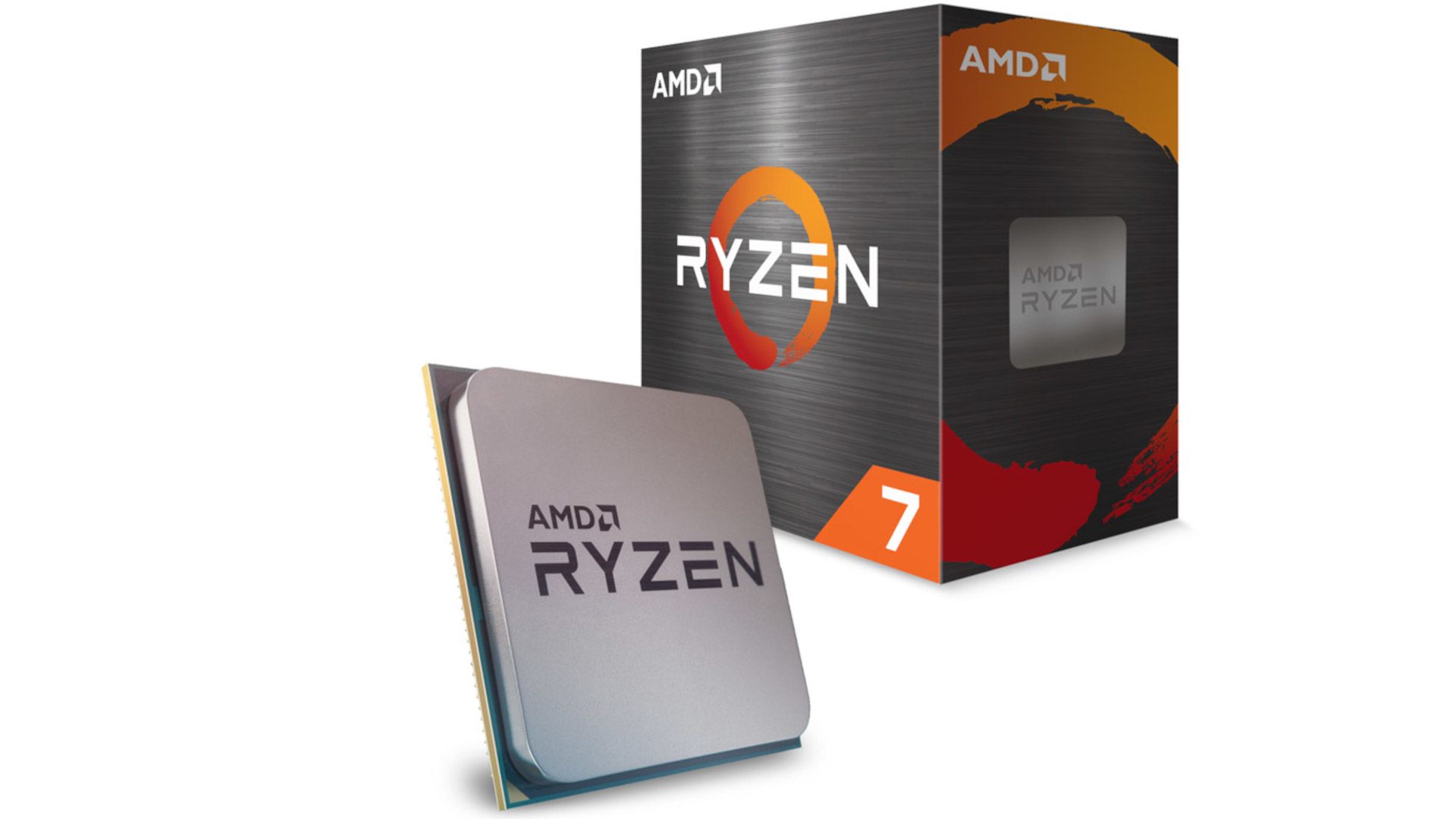
We utilized the RTX 3090 from Nvidia for our gaming tests. When we look at Far Cry New Dawn first, we discover that the 5800X is just 3% slower than the 10900K in this latency-sensitive game, outperforming the 5900X and 5950X by a hair.
That represents an 18% performance improvement over the 3700X, which, at least when comparing average frame rates, can be seen falling below even the Core i5-10400.
In F1 2020, the 5800X dominated its predecessor by a 20% margin and even managed to edge out the 10700K by 5%. It basically finished 3% behind the 10900K, matching the 5900X and 5950X.
The 5800X only loses a few frames in performance when compared to higher-end versions, as was the case previously with the 5900X and 5950X, and Zen 3 gives strong performance in Horizon Zero Dawn. As a result of an 18% performance improvement over the 3700X, it was 3% faster than the 10700K and matched the performance of the Core i7.
In Death Stranding, there is no tie because the 5800X was 12% faster than the 10700K, and boosting the Core i7 component would make it difficult to make up that difference. It’s fantastic that the 5800X is 33% faster than the 3700X, but after looking at the 5900X and 5950X, we’re starting to grow used to these kinds of margins.
Final Thoughts on AMD Ryzen 7 5800X
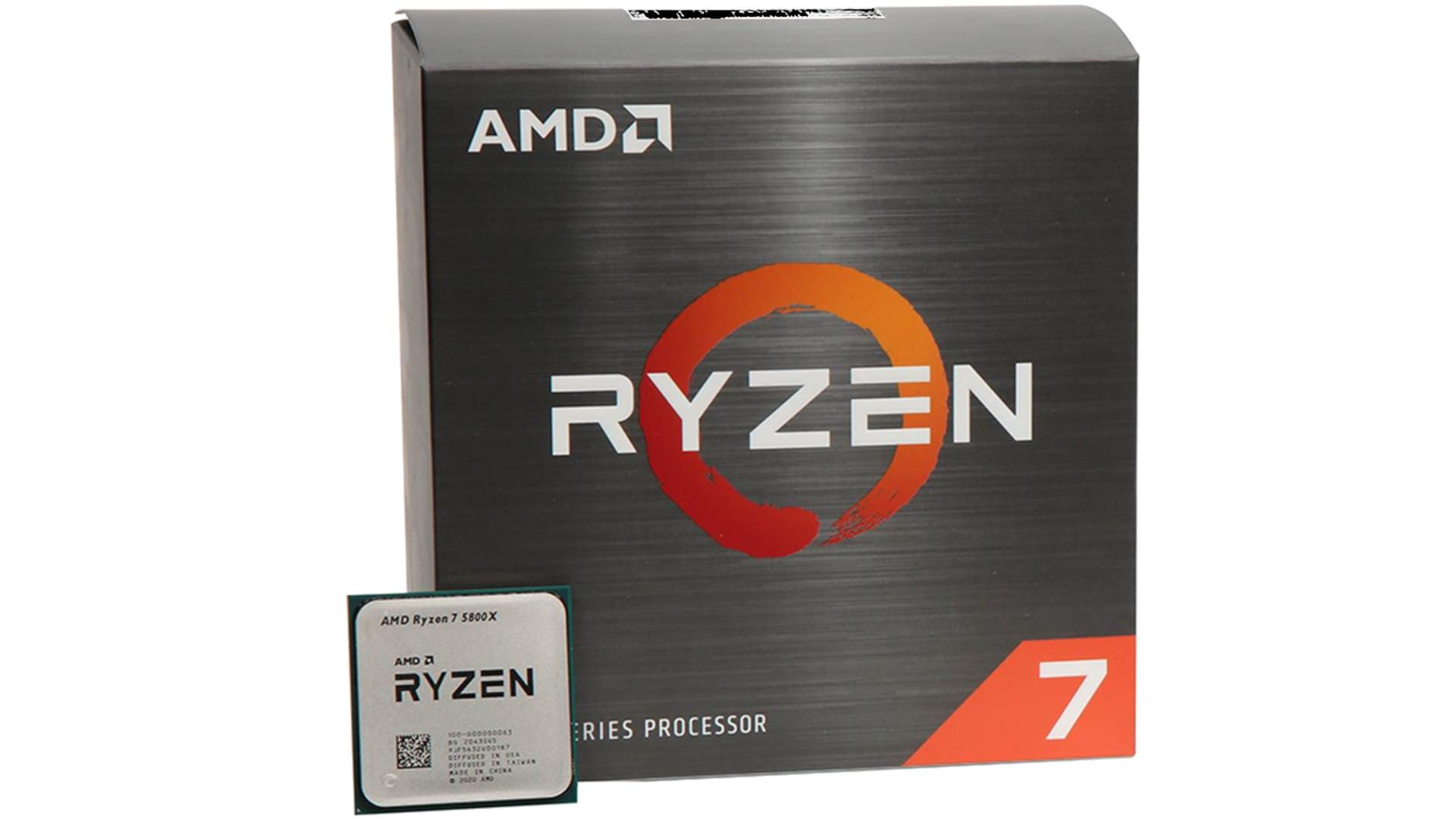
AMD has changed the definition of the market’s mainstream division to include processors with 6 or 8 cores, but it has left few options for enthusiasts to upgrade to 8 cores without paying a significantly higher price. The ‘ missing ‘ Ryzen 7 5700X is something AMD really needs to close the significant price gap in its product line. Such a processor would probably put the Core i7-10700K out of the running and make the shift from Ryzen 5 to Ryzen 7 more appealing.
Overall, the Ryzen 7 5800X’s performance is impressive, but its high price is disappointing. Due to the persistent shortages, AMD can maintain its premium pricing and sell every chip almost quickly. The Ryzen 7 5800X’s cost, nevertheless, might end up being the weak link in an otherwise excellent chip when availability increases.
Is AMD Ryzen 7 5800X worth it?
AMD Ryzen 7 5800X was a high-performance CPU that was well-regarded by both enthusiasts and professionals for its outstanding performance in a wide range of applications, including gaming, content production, and more. However, whether it is worthwhile for you is dependent on your unique requirements and budget.
Here are some things to think about when choosing if the AMD Ryzen 7 5800X is worth it:
Performance: The AMD Ryzen 7 5800X has excellent multi-core performance and is ideally suited for jobs that need several cores, such as video editing, 3D rendering, and software development. It also has superb gaming performance, making it a fantastic pick for gamers.
Price: The cost of the CPU is an important consideration. You should compare the AMD Ryzen 7 5800X pricing to that of competing CPUs in its class and assess your budget.
Check if the CPU is compatible with your motherboard and other components. The AMD Ryzen 7 5800X uses the AM4 socket, however depending on the model, you may need to upgrade your motherboard’s BIOS to enable it.
Consider what you will mostly use your computer for. The AMD Ryzen 7 5800X is a superb choice if you require a high-performance CPU for demanding jobs. If your tasks are less CPU-intensive, a less expensive CPU may suffice.
Future-Proofing: Consider your long-term requirements. Because of its high performance and compatibility with PCIe 4.0, the AMD Ryzen 7 5800X provides good future-proofing for future graphics cards and storage devices.
Check for competitive CPUs from Intel and other manufacturers to determine if better choices are available at the time of purchasing.
It’s crucial to remember that the technological environment may shift quickly, and newer CPUs may have been available after my previous knowledge update. I recommend reading the most recent evaluations and benchmarks to see how the AMD Ryzen 7 5800X stacks up against other CPUs in terms of performance and value for your individual needs.
Availability and cost might differ, so check current market circumstances before making a selection.
The AMD Ryzen 7 5800X isn’t the quickest of Zen 3’s content production processors. But it’s the Zen 3 CPU’s price-to-performance ratio in both gaming and video creation that really distinguishes it from other new-generation AMD and Intel CPUs we’ve evaluated so far. The CPU is an excellent choice for anybody looking for a processor that can compete in creative jobs such as media editing and rendering. However, it leaves practically nothing on the table when it comes to playing one of your favorite games in 1080p.
Is AMD Ryzen 7 5800X good for gaming?
AMD Ryzen 7 5800X is the successor to another CPU, the Ryzen 7 3800XT, with comparable performance and usage. However, much has changed with this new CPU, beginning with the architecture and progressing to the computational capacity. You’ll discover what its pros and disadvantages are below so you can decide if it’s perfect for you.
The AMD Ryzen 7 5800X is one of the forerunners of AMD’s fifth-generation CPUs. It is an ideal CPU for almost every use, from gaming to work, from enjoyment to editing. Furthermore, it is less expensive than the Core i9-11900K and Ryzen 9 5900X while providing comparable performance. If you want a CPU that can handle all of your work while remaining blazingly fast in the future, then the Ryzen 7 5800X is the one for you.
However, in order to properly utilize the AMD Ryzen 7 5800X gaming capabilities, it must be paired with a powerful GPU and adequate RAM. The graphics card (GPU) you choose has a huge impact on gaming performance, so be sure it matches the CPU’s capabilities.
Remember that gaming performance can also be affected by factors such as game optimization, resolution, and graphics settings. To get the most out of your gaming experience, match the Ryzen 7 5800X with a high-quality GPU and make sure your gaming rig is well-balanced. Overall, it’s an excellent option for gamers looking for a high-performance CPU for their gaming PC.
Can you overclock AMD Ryzen 7 5800X?
Always invest in solid gear if you intend to overclock the processor. A decent motherboard, power supply, RAM, and, of course, cooling are all required. Cheaper motherboards are frequently not well-tuned or suited for enthusiast overclocking in terms of power supply. This might result in a lower power delivery (phases) design rapidly heating up the associated components, producing instability.
Also, never underestimate the value of a good power supply. When you alter a CPU, depending on your goals, you may need to boost voltage to the processor, which generates additional heat. As a result, sufficient processor cooling is required.
The latest ZEN3 processors have been overclocked. On all Series 5000 CPUs, we achieved a steady all-core 4700 MHz; some may be able to reach 4800 MHz.
Remember that not all AMD Ryzen 7 5800X CPUs will overclock at the same rate. Because of inherent variances in silicon quality, certain chips may have greater overclocking capability than others. As a result, there are no assurances that a certain overclocking result will be obtained.
If you’re new to overclocking, conduct comprehensive research, study your motherboard’s instructions, and consider obtaining guidance from expert overclockers or overclocking communities. Overclocking should be approached with caution, and you should be prepared to restore to default settings if stability concerns develop or if you are not comfortable with the procedure.
What temperature should an AMD Ryzen 7 5800X run at?
The 5800X, 5900X, and 5950X are all rated safe to 90 degrees Celsius under full load, whereas the 5600X is rated to 95 degrees Celsius under full load. However, the case, cooler, fans, GPU, and even the motherboard may all make a difference.
I have an AMD Ryzen 7 5800X on an Asus Tuf B550-PLUS board with PBO and an OC RTX3060ti. My temperatures are 38C-43C idle, 57C-65C light to moderate loads, and 70-78C peak under severe load on a Scythe Mugen 5 with six LL120s on a Corsair Commander in a Fractal Pop XL Air case.
How much power does AMD Ryzen 7 5800X draw?
As a result, the 105W AMD Ryzen 7 5800X is subject to the same 142W PPT restriction as its predecessor. The Ryzen 7 5800X uses a peak of 112 watts at stock settings in this intensive AVX task, as seen by the y-cruncher threaded benchmark results, which is much more than the previous-gen Ryzen 7 3800XT.
AMD Ryzen 7 5800X
-
Performance - 96%96%
-
Price - 97%97%
-
Value - 97%97%

